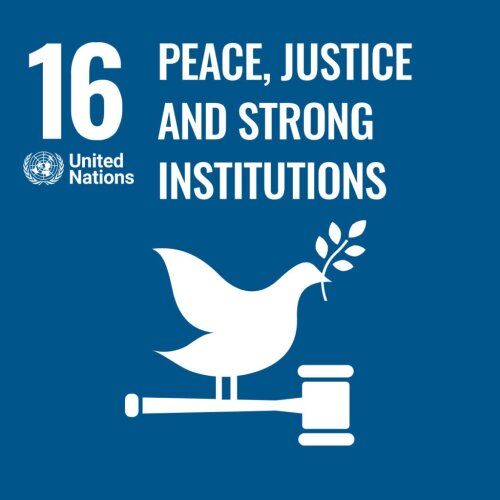Best Real Estate Contracts and Negotiations Lawyers in Trinidad and Tobago
Share your needs with us, get contacted by law firms.
Free. Takes 2 min.
Free Guide to Hiring a Real Estate Lawyer
Or refine your search by selecting a city:
List of the best lawyers in Trinidad and Tobago
About Real Estate Contracts and Negotiations
Real estate contracts and negotiations are crucial components of property transactions. These involve legally binding documents that outline the terms and conditions concerning the sale, purchase, leasing, or renting of real estate. In Trinidad and Tobago, understanding the intricacies of these contracts and negotiations is vital for ensuring smooth transactions and protecting parties' rights.
Law in Trinidad and Tobago: A Brief Overview
In Trinidad and Tobago, the law governing real estate contracts and negotiations is derived from a combination of statutory and common law principles. This includes the Conveyancing and Law of Property Act, the Registration of Deeds Act, and precedents from previous court rulings. Contracts must generally be in writing and include specific information to be enforceable, such as the identification of parties, a legal description of the property, terms of sale, and signatures. Due to the complex nature of these legal documents, engaging professionals can help ensure compliance and accuracy.
Why You May Need a Lawyer
Though individuals can sometimes manage real estate transactions on their own, there are numerous situations where the expertise of a lawyer is invaluable:
- Drafting or reviewing contracts to ensure all terms are clear and legally sound.
- Negotiating terms to better meet your needs or financial situation.
- Resolving disputes with potential buyers, sellers, or landlords.
- Handling complex transactions involving commercial real estate.
- Clarifying zoning laws and regulations that may affect property use.
- Assisting with title searches or addressing title-related issues.
Local Laws Overview
Trinidad and Tobago's real estate laws cover various key aspects pertinent to contracts and negotiations:
- Formation and Enforceability: Contracts must meet specific requirements to be legally binding, including written documentation and clear terms.
- Leases: Guidelines dictate the rights and responsibilities of landlords and tenants, including regulations around security deposits and termination.
- Property Registration: The Registration of Deeds Act requires any property transaction to be registered to be lawful, providing clarity and security of ownership.
- Zoning and Land Use: Restrictions and permissions around land use may impact property value and potential development and should be verified before transactions.
Frequently Asked Questions
1. What is a real estate contract?
A real estate contract is a legally binding agreement between parties regarding the property sale, purchase, rental, or lease. It details conditions, terms, and responsibilities each party must fulfill.
2. Do I need to register a property lease?
Yes, to be enforceable, leases typically must be registered with the Registrar General. This protects the interests of both landlord and tenant.
3. Can I negotiate the terms in a real estate contract?
Yes, all aspects of a real estate contract can be negotiated, including price, closing date, contingencies, and inclusions. A lawyer can assist in achieving favorable terms.
4. What is a title search, and why is it important?
A title search involves reviewing public records to confirm the legal ownership of a property and uncover any liens or restrictions. It's essential for ensuring clear title transfer.
5. What are contingency clauses?
Contingencies are conditions that must be met for a real estate transaction to proceed. Common contingencies include financing approval and property inspections.
6. What happens if a party breaches a real estate contract?
If a party fails to meet the contract’s obligations, it is considered a breach, and the non-breaching party may seek remedies such as damages or specific performance through legal channels.
7. Are verbal agreements valid for real estate transactions?
Generally, real estate agreements in Trinidad and Tobago should be in writing to be enforceable. Verbal agreements may not hold up in legal contexts.
8. How long does the property purchasing process take?
The timeline can vary, but generally, it may take 30 to 90 days from contract signing to closing, depending on factors like financing, inspections, and title searches.
9. What is earnest money in a real estate transaction?
Earnest money is a deposit made to demonstrate the buyer’s commitment to the transaction. It is typically held in trust until closing and applied towards the purchase price if the sale proceeds.
10. Is it necessary to undertake a survey before buying property?
While not always required, a land survey is highly recommended to verify property boundaries, identify easements, and ensure the property's legal description matches the physical land.
Additional Resources
For those seeking more information or assistance with real estate contracts and negotiations in Trinidad and Tobago, the following resources may be helpful:
- The Law Society of Trinidad and Tobago: Provides a directory of attorneys specialized in real estate law.
- Registrar General's Department: Offers resources for deed and title registration processes.
- Trinidad and Tobago Ministry of Legal Affairs: Offers various guides and services related to property law.
- Chamber of Commerce: Provides insights on commercial real estate transactions.
Next Steps
If you find yourself in need of legal assistance concerning real estate contracts and negotiations, here are steps you can follow:
- Consult a Lawyer: Seek out an experienced real estate attorney who can provide specific advice tailored to your case. Contact the Law Society for recommendations if needed.
- Collect Documents: Gather all relevant documents, including existing contracts, property descriptions, and correspondence, to provide your lawyer with all necessary information.
- Prepare Questions: Compile a list of queries or concerns you have regarding your real estate transaction to discuss with your legal advisor.
- Understand Your Rights: Familiarize yourself with basic rights and responsibilities pertaining to real estate transactions in Trinidad and Tobago.
- Consider Mediation: If facing disputes, consider mediation as a cost-effective and faster alternative to litigation.
By taking these proactive steps, you can protect your interests and navigate the complexities of real estate transactions with greater confidence.
Lawzana helps you find the best lawyers and law firms in Trinidad and Tobago through a curated and pre-screened list of qualified legal professionals. Our platform offers rankings and detailed profiles of attorneys and law firms, allowing you to compare based on practice areas, including Real Estate Contracts and Negotiations, experience, and client feedback.
Each profile includes a description of the firm's areas of practice, client reviews, team members and partners, year of establishment, spoken languages, office locations, contact information, social media presence, and any published articles or resources. Most firms on our platform speak English and are experienced in both local and international legal matters.
Get a quote from top-rated law firms in Trinidad and Tobago — quickly, securely, and without unnecessary hassle.
Disclaimer:
The information provided on this page is for general informational purposes only and does not constitute legal advice. While we strive to ensure the accuracy and relevance of the content, legal information may change over time, and interpretations of the law can vary. You should always consult with a qualified legal professional for advice specific to your situation.
We disclaim all liability for actions taken or not taken based on the content of this page. If you believe any information is incorrect or outdated, please contact us, and we will review and update it where appropriate.
Browse real estate contracts and negotiations law firms by city in Trinidad and Tobago
Refine your search by selecting a city.














